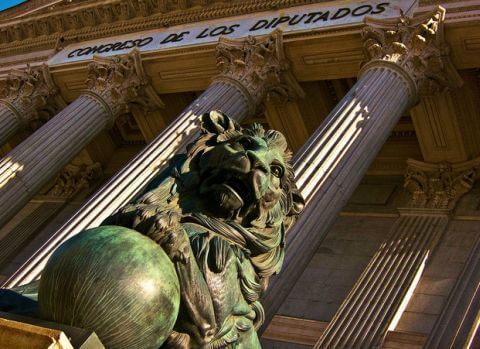Today’s Top Stories
1. The Druze community of the Israeli Golan is undergoing a shift in loyalty towards the Jewish state. The four-year-old Syrian civil war has been a wake up call towns like Majdal Shams.
But as the war in Syria worsens and new ideas continue to take hold, few here see much benefit in siding with Assad or associating themselves with the Syrian government, whether it stands or falls. “The whole village is waiting for someone to break the taboo,” Firas says. “I would say it’s just a matter of time before we all have blue [Israeli] IDs.”
2. Israelis are breathing a sigh of relief: In a big surprise, Turkey lost big time in a bid for a seat on the UN Security Council. Newsweek explains what did in Ankara:
In the past few days, according to several diplomatic sources, there was an intense campaign, led by Egypt and Saudi Arabia, against Turkey’s membership in the council. The two countries are angered by President Recep Tayyip Erdogan’s support for the Muslim Brotherhood, which both are fighting at home.
But a YNet assessment points out that the council will still give Israel a tough time because the friendly Australians are giving up their seat. Angola, Malaysia, New Zealand, Spain, and Venezuela (Venezuela?) begin their two-year stints on January 1.
Israel, which has never held one of the rotating seats, is lobbying for a seat in 2019-2020, but it’s an uphill battle that few expect Jerusalem to win.
3. Al Arabiya reports that Spain’s parliament will vote on a non-binding resolution recognizing the state of Palestine. This comes on the heels of the UK House of Commons symbolically recognizing Palestine in a vote The Independent called the vote “historic. Meanwhile, Elliott Abrams slammed a New York Times staff-ed on the British vote.

4. Study: Self-Censorship Rife Among Palestinian Journalists: If Palestinian reporters are censoring their own news coverage, how can Western editors know for sure that the people they rely on for stories are not doing the same?
5. The New York Times’ Double Standards: For the public editor, the occupation of the son of a columnist is more significant than the admiration for Yasser Arafat of one of its correspondents.
Israel and the Palestinians
• Mahmoud Abbas will reportedly visit Gaza in the coming weeks, according to The Media Line. He hasn’t stepped foot there since 2006, which was several months before Hamas violently seized control of the strip.
• Once again, the European Union is threatening to reassess relations with Israel if it’s not satisfied with Israeli peace moves.
The EU’s new policy has gone largely unnoticed due to this summer’s Operation Protective Edge, but EU officials are already busy at work on a set of sanctions against Israel that Brussels could enact whenever the union’s political echelon gives a green light. Indeed, some in the EU are currently considering implementing a mechanism that would immediately penalize Israel for every step deemed unhelpful to the peace process (such as settlement expansion), a senior European diplomat told The Times of Israel.
Already, the EU notified Israel that it won’t accept dairy imports from Israeli settlements and may blacklist settlers convicted of crimes from traveling to Europe.
• Islamic Jihad chief hails Iran role in Gaza war
• Israel successfully tested a “naval Iron Dome.”
• Dr. Othman Abdal-Kian, an Israeli Bedouin, was reportedly killed while fighting for ISIS. The Jerusalem Post notes a number of other Israeli Arabs who joined the ranks of ISIS

• A Fordham University professor fighting the academic boycott of Israel is investigated on secret charges. Professor Doron Ben-Atar describes the Kafkaesque witch hunt he faced — the school wouldn’t even tell him what exactly he was charged with.
A New York Post staff-ed denounced the Jesuit school’s “little Inquisition.
• Anger grows over Swedish government funding for anti-Zionist groups amid diplomatic row
• Suspect held for planned attack on Jewish center in Buenos Aires.
• UK Charity Commission froze the accounts of Viva Palestina and appointed interim managers to replace its board of trustees. The organization, founded by George Galloway, is being investigated for financial mismanagement.
Media Angles
• Richard Horton, the chief editor of The Lancet, shared his thoughts on his recent visit to Israel.
He said a number of good things, but the main issue which prompted his Israeli jaunt — a mendacious Open Letter to the People of Gaza co-authored by two doctors who distributed an anti-Semitic video — remains a sore point. The letter has not been retracted, and is still on the medical journal’s web site.
Meanwhile, an Israeli scientist resigned from the Lancet’s advisory board. Professor Eli Pollak accused Horton of knowing that the letter’s authors had conflicts of interest even before publishing it.
• Here’s a stupid photo failure at the Sunday Times of London. Last year, a photo of an Orthodox Jewish airplane passenger wrapped in plastic on a flight to Israel went viral. (The passenger, a former Israeli soldier, explained to YNet at the time he wrapped himself up for reasons of religious purity because the plane flew over a cemetery.)
What the Sunday Times did with the photo is both stupid and sensationalizing because it has nothing to do with Ebola or American “hysteria,” while the caption smacks of laziness. With all the resources available to the paper’s team of graphic artists, this was the best the Times could do?
• ISIS warns it will crucify (literally) journalists who run afoul of 11 rules — one of which is swearing allegiance to the Caliph, Abu Bakr Baghdadi.
• New York Times Public Editor: Should David Brooks Disclose His Son’s Israeli Military Service?
• After Gaza war, AP correspondent Ibrahim Barzak has had enough and is moving to Malaysia. He told the JTA ‘s Ron Kampeas the move had to do with his children.
• Over at NPR, former Israel correspondents Matti Friedman and Ethan Bronner debated media coverage of the Mideast conflict.
• U.S. Journalist Regrets Attending Conspiracy Conference In Tehran
Commentary/Analysis
• Khaled Abu Toameh: How foreign donors saved Hamas with more than $5 billion pledged.
Rebuilding or repairing infrastructure in the Gaza Strip is the best thing that could have happened to Hamas. Hamas knows that every dollar invested in the Gaza Strip will serve the interests of the Islamist movement. The promised funds absolve Hamas of all responsibility for the catastrophe it brought upon the Palestinians during the confrontation with Israel.
• What The United States Can Learn From Israel About Cybersecurity
• Yemen changes hands: Will an Iranian stronghold emerge near entrance to the Red Sea?
Rest O’ the Roundup
• Israeli media aired footage it says showed the UN paying ransom money to the Al-Nusra Front for the release of 45 Fijian peacekeepers captured in Syria near the Israeli border. The $25 million ransom was ponied up by Qatar.
• It’s nice to see Foreign Affairs‘ look at the restoration of Beirut’s historic Magen Abraham synagogue. In the spirit of co-existence, support for the project crossed sectarian lines. Perhaps the real reason even Hezbollah gave the project a thumbs up is that the Magen Abraham makes for a useful fig leaf — the Jewish community’s too small to be a tipping point for ethnic tensions that make my head swim.
• If Ayatollah Khamenei dies, what happens next?
Featured image: CC BY flickr/Petr Dosek, parliament CC BY Flickr/Alberto Carrasco Casado
For more, see yesterday’s Israel Daily News Stream and join the Israel Daily News Stream on Facebook.


